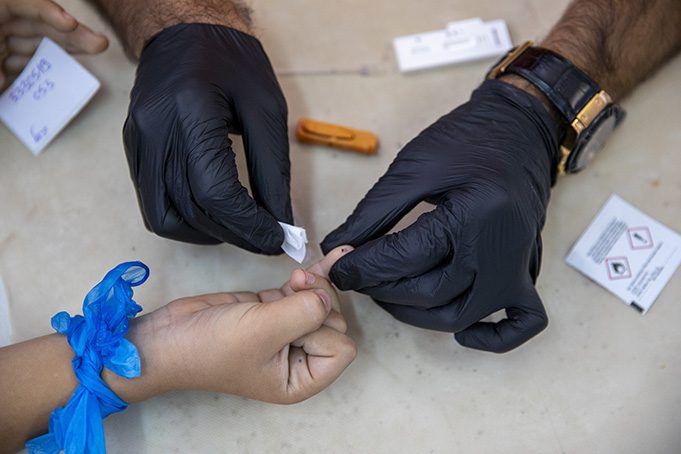
RALEIGH — As of Aug. 30, more than 1.1 million have recovered from COVID-19 since the coronavirus pandemic began in March 2020. State health leaders, however, say that despite recovering from the virus, those individuals should still get vaccinated.
During a press briefing on Aug. 18 with Gov. Roy Cooper and state leaders, N.C. Department of Health and Human Services Secretary Mandy Cohen indicated that the state wasn’t actively tracking the number of citizens who may possess immunity.
This type of antibody testing, which has been done locally by Wake Forest Baptist Health, for example, often shows a higher degree of antibodies in the community than just those with positive COVID-19 tests.
The Wake Forest study showed that before vaccinations began in late December 2020, 30% of those who took an antibody test showed antibodies against the virus. Now, as of Aug. 31, 54% of the state’s population has received at least one dose of vaccine, including 65% of those 18 or older.
In the United Kingdom, the Office of National Statistics shared an update in late July that showed 94% of the population in England had antibodies, but only 80% were fully vaccinated.
In response to a question about how the state was handling those with natural immunity, Cohen said they should still get vaccinated.
“There’s a very different way in which your body builds immunity when you get COVID vs. when you get a vaccine. The vaccine is a supercharged way of teaching your body about COVID,” said Cohen in the briefing. “When you get COVID in the community, it potentially can just give you a limited type of immunity. Some people it can give extensive immunity, but often it is limited.”
That view, however, is not shared by all health leaders.
Dr. Marty Makary, a Johns Hopkins physician and public health researcher, has written extensively on the benefit of natural immunity in addition to the national vaccination campaign.
In a recent question-and-answer with U.S. News & World Report, Makary says, “I’ve had debates with other public researchers about the effectiveness and durability of natural immunity. I’ve been told that natural immunity could fall off a cliff, rendering people susceptible to infection. But here we are now, over a year and a half into the clinical experience of observing patients who were infected, and natural immunity is effective and going strong.”
He continues, saying, “That’s because with natural immunity, the body develops antibodies to the entire surface of the virus, not just a spike protein constructed from a vaccine.”
Makary has also taken on blanket vaccination mandates, such as those from Gov. Cooper for some state employees and numerous businesses.
He cites a Cleveland Clinic study in a recent Wall Street Journal op-ed that showed individuals who have had previous infection are unlikely to benefit from COVID-19 vaccination.
The study itself, conducted among over 5,000 employees of the health system, revealed that there was no scientific evidence or benefit to mandating the vaccine.
Another aspect of the vaccination-only efforts coming under more scrutiny is the growing data that the efficacy of vaccines appears to wane quickly.

A lengthy study in Israel found that Israelis who were vaccinated were 6.72 times more likely to get infected after vaccination than after natural infection.
Bloomberg reported that the study, which the news organization says was the largest real-world analysis comparing natural immunity to the protection provided by the Pfizer shot, “contrasts with earlier studies, which showed that immunizations offered better protection than an earlier infection, though those studies were not of the Delta variant.”
“This analysis demonstrated that natural immunity affords longer lasting and stronger protection against infection, symptomatic disease and hospitalization due to the delta variant,” the Israeli researchers said to Bloomberg.
Despite this data, it appears that state leaders will continue to emphasize the strategy of vaccinating everyone eligible to receive the shot.



